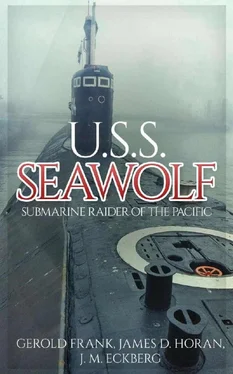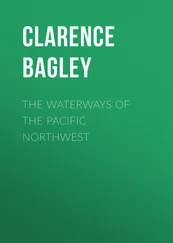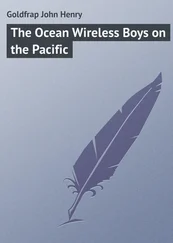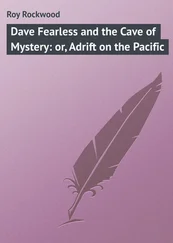We made it into Corregidor without being detected. During the night we were again escorted in by a PT boat. Again we slowly passed through the heavy mine field. Our lines were no sooner fast to the dock than we were sweating away unloading our ammunition. It was impossible to unload so enormous a cargo in one night. We dared not remain tied to the dock during daylight. Before dawn we eased out into deep water, submerged, and lay on the bottom until nightfall. Dusk came, then darkness. We surfaced. We stole back into the dock, and finished unloading. Then, at last, some of us had an opportunity to go ashore and see what was going on.
In the midst of a brilliant starlit night, I walked over the gangplank and stepped upon the same wooden dock I had been upon four weeks before. Our men now were making the bravest kind of a stand that a man can make: they were fighting off an enemy who grew stronger every hour. As I breathed slowly, grateful for the fresh air, I heard the distant thunder of the Jap guns on Bataan, twenty miles away. There was activity all around me, but it was weirdly silent. Soldiers hurried by, struggling with the ammunition we’d piled on the dock. Men were standing about in small groups. They watched and said nothing. As I stood there, the wind veered and the most nauseating stench I ever smelled hit me. I needed a cigarette bad. I dug into my pocket for one and was about to strike a match when a voice sounded at my elbow.
“I wouldn’t light that if I were you, buddy,” it said.
I turned. It was a soldier. The moonlight glinted off the Tommy gun he had slung over his shoulder. “No lights allowed anywhere,” he said. “We’re under blackout conditions.” I threw my cigarette away. His face was hardly visible, but he looked young. “They pushing you around much up here?” I asked. His reply was typical of the 31st Infantry, and I think it represented what was in the minds of the men on Corregidor then. Yes, things were tough, but they were holding out. After all, this was the end of January; they did not capitulate until May. As for Jap successes—“Naw,” he said, with contempt. “We’re averaging better than fifty to one against those little bastards. Sure, we’re having trouble, but the Japs aren’t the cause of it.”
Food bothered them, he said. Rice, and more rice. They were sick of it. They were eating only twice a day now, and mostly rice. Typhoid was breaking out. About the only exercise they got was at noon when the Jap planes came over and the men ran for shelter. The Nip bombers, he said, came over every day. “You can set your watch by them. But we’re knocking ’em out of the sky like clay pigeons. The other day one of our three-inch anti-aircraft set a world record. Knocked down eight planes in one day. We figure more than 80 percent of their bombs fall into the water.”
At that moment the wind veered again.
“What is that?” I demanded. “Christ, what is that smell?”
“Yeah,” said the soldier, “I know. It’s Japs. Those are dead Japs you’re smelling. We got thousands of them laying around these hills. They’re not burying them and—well, when the wind’s right…”
That was it. The stench of death hung sickeningly over Corregidor. In these waters about us, in these hills vaguely etched against the horizon, lay bloated, mutilated bodies. During the day that fierce equatorial sun beat down on them, and at night the smell of death was overpowering. But the soldier was talking again. How long were we staying? I didn’t know, I said. All I knew was, they needed ammunition and we brought it to them.
Did I think help was on the way?
I said I thought the fleet should be coming along pretty soon.
“I wasn’t wondering so much about the big fleet,” he said. “But we sure could use some planes. Those damn Japs cavort around up there, and our pea-slingers can’t always reach that high. We knocked down a few foolish ones, but that did the trick. Now they just go a little higher.”
The next night I was able to go into Corregidor itself. I wanted to see what it was like, and I wanted to pick up a few radio parts if they could spare them. In the darkness, wearing sandals and shorts and shirt, a heavy growth of beard on my face, I walked up the dusty road and got my first glimpse of the island fortress, 600 feet high, that splits the Bay of Manila, and was then known as the biggest and most impregnable fort in the world. None of its defenses could be seen from the sea or sky. The gun emplacements were beautifully hidden by trees planted to hide them. It was magnificent.
As I looked at the Rock, there in the gloom, I thought, Corregidor may fall, but the Japs will pay for it.
Finally I came to the mouth of a tunnel at the base of a cliff. I was amazed at the brilliance inside. It was as bright as day, and I had to shield my eyes at first against the hard white light. I saw men sleeping everywhere. They lay rolled up in blankets; dozed sitting on chairs and cases of ammunition. Here two men were lining a number of hospital cots against a wall. A little farther on, a group of soldiers were standing about a small cigar stand, chatting and exchanging gossip as men do around cigar stands anywhere in the world. Half a dozen soldiers hurried by me, carrying large galvanized cans. They stared at me. I guess I looked like a hermit come out of the hills.
“What’s in that can?” I asked.
“Chlorinated drinking water,” one soldier said.
“Wait a minute,” I called. “What tunnel is this?”
He paused for a minute. “Malinta tunnel,” he said. “You looking for anything in particular?”
I told him I was looking for Communications.
“Straight ahead,” he said. “Keep going.”
I kept going. I passed massive steel doors on either side of the tunnel leading to smaller tunnels, and finally came to one door behind which I was told I’d find Communications. I put my hand on the knob.
A navy ensign appeared from nowhere. “Just a minute, please,” he said crisply. “Where are you going?”
I identified myself and told him.
“I’m sorry,” he said. “I don’t think we can permit you to go in there now. They’re just too damn busy, and you wouldn’t have a very good chance of finding what you want anyway.”
I decided the best thing for me to do was get out of the way.
My place was on the Seawolf . I returned the way I came. Walking back to the dock, I could see searchlights playing up and down the shoreline of Mariveles, the naval base about a mile to the north, hunting the Japs along the mainland. Now and then, the rat-a-tat-tat of machine-gun fire came to my ears, and I could hear the dull thud of artillery fire from Bataan. Every few minutes brilliant white flares split the darkness off toward Mariveles. Searchlights continued to move their fingers across the sky.
I went aboard the Seawolf and down where I belonged—in the sound room. That was the last picture I had of Corregidor.
CHAPTER V
Rescue of the Bamboo Fleet
IT WAS later that we surfaced and stole in to the dock again. We had not been there ten minutes when a military truck rumbled down to the dock, and out of it came more than a score of the most disreputable human beings in Army uniform I had seen. They looked as if they might have stepped by magic right off New York’s Bowery. They were gaunt, and their fatigue uniforms were dirty and tattered. I caught one glimpse of them and then was called below. Our visitors came abroad. I wondered who they were.
Then a message came down: “All passengers on deck.”
Passengers? I thought. What were we up to now? After acting as a transport all over the Far East, were they going to turn us into a ferry? Maley solved it for me when I took up my post next to him.
Читать дальше






![Hubert Bancroft - The Native Races [of the Pacific states], Volume 5, Primitive History](/books/749157/hubert-bancroft-the-native-races-of-the-pacific-s-thumb.webp)

![Hubert Bancroft - The Native Races [of the Pacific states], Volume 1, Wild Tribes](/books/750126/hubert-bancroft-the-native-races-of-the-pacific-s-thumb.webp)



![Edward Ellis - Adrift on the Pacific - A Boys [sic] Story of the Sea and its Perils](/books/753342/edward-ellis-adrift-on-the-pacific-a-boys-sic-s-thumb.webp)